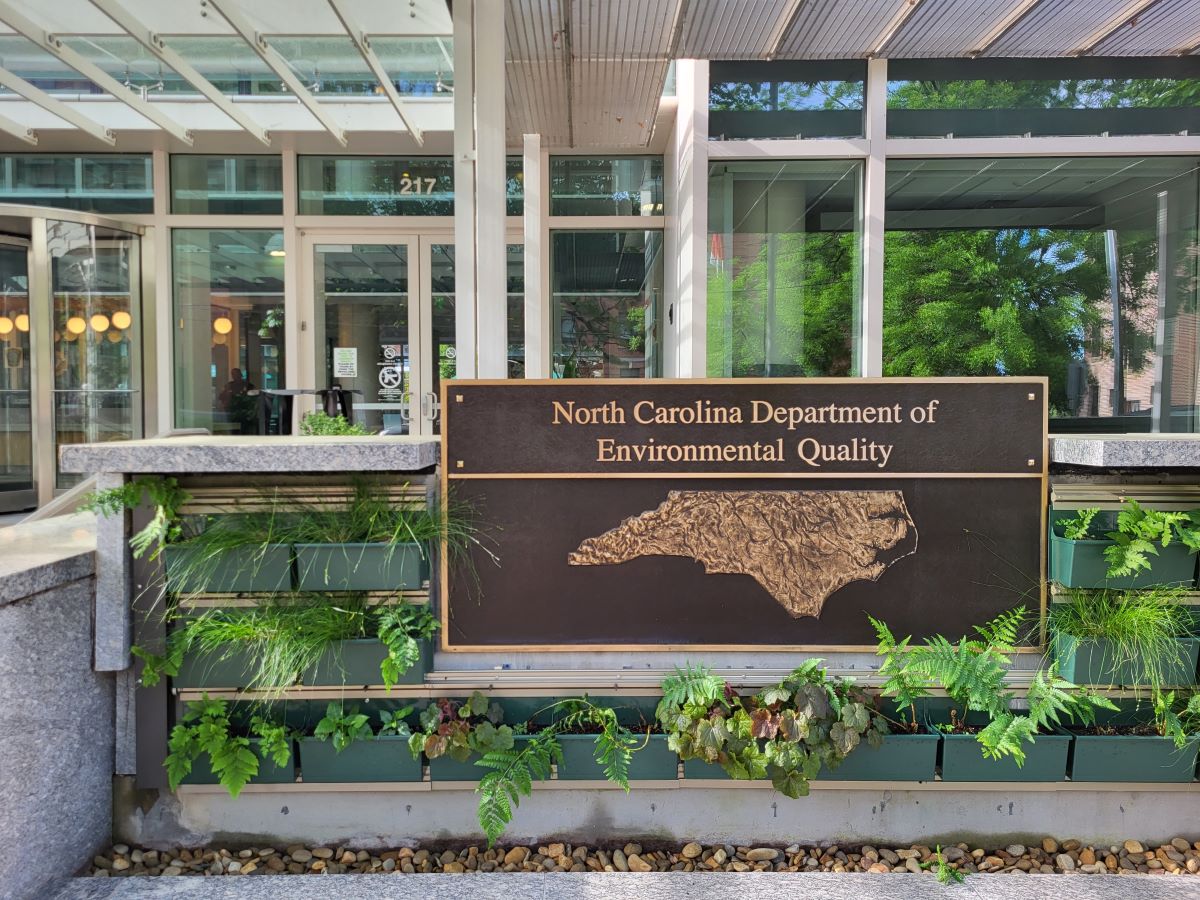
Salary increases for state employees included in the recently adopted budget are expected to help narrow the gap of staff vacancies within the North Carolina Department of Environmental Quality.
As of the first of this month, 256 out of 1,797 department positions were empty, holding the vacancy rate at just over 14%, according to DEQ Deputy Secretary for Public Affairs Sharon Martin.
Supporter Spotlight
Though that’s about a 5% decrease in the number of vacancies the department had around this same time a year ago, the department continues struggling to fill certain jobs where the pay is substantially more in the private sector.
The 2023 Appropriations Act that became law Oct. 3 includes state employee raises of 7% over two years and a laundry list of fee increases tacked on to permits and applications handled by DEQ’s various divisions.
Related: Budget strips certain powers from local governments
The legislative salary increase that is 4% the first year and 3% the second, fee hikes and money from the Labor Market Adjustment Fund of which more than $730,000 is included annually to recruit and retain critical staff positions “are helpful in beginning to address DEQ’s below market salaries,” Martin said in an email.

“However, we are still faced with the challenges of a highly competitive market, especially for engineers and environmental specialists,” she said. “DEQ continues to look for opportunities to address salary concerns and fill vacancies.”
Supporter Spotlight
DEQ’s vacancy rate is at 22% for engineers and environmental specialists.
Martin pointed out that the budget also includes 25 additional full-time positions, including one dozen jobs aimed at addressing per- and polyfluoroalkyl substances, or PFAS. PFAS are chemical compounds used in a variety of consumer products because of their resistance to heat, water, oil and grease.
There are well over 10,000 PFAS. Researchers are just scratching the surface on understanding how these chemicals, which are being released into the environment through the air, soil and drinking water sources, affect human health.
DEQ is monitoring PFAS in the Cape Fear River and other drinking water sources in the state, and the agency is working with the North Carolina Department of Health and Human Services to test fish for PFAS to issue fish consumption advisories based on those test results.
The department also oversees the North Carolina Resilient Coastal Communities Program, or NC RCCP, which received a $10 million budget allocation.
NC RCCP aims to boost resilience efforts in the state’s 20 coastal counties and encourages those who live and work along the coast to participate in finding solutions and prioritizing projects designed to help their communities bounce back from flooding and storms. The program is a product of the state’s 2020 Climate Risk Assessment & Resilience Plan, which was the result of Executive Order 80 signed by Gov. Roy Cooper in October 2018.
Also included in the budget is $2 billion in investments for water and wastewater infrastructure throughout the state.
Fee increases range anywhere from around $200 to $400, and more in some cases.
Martin said more than 15 years have passed since the last fee increases had been implemented for many programs within the department.
The budget became law without Cooper’s signature. The governor, who is wrapping up his final term in office, called the budget “bad,” saying that, among other things, some provisions within it violate the constitution.
A provision of the law stipulates that DEQ cannot refuse to accept or issue an application for a permit, authorization, or certification if the applicant has not first received those from any other state or federal agencies “except to the extent required by federal or State law.”
The provision also restricts local governments’ authority by mandating that they cannot deny a draft erosion and sedimentation control plan if an applicant has yet to receive other environmental permits, “aside from a permit required for stormwater discharges from construction sites.”
Local governments must grant conditional approval on a draft plan “upon the applicant’s compliance with federal and State water quality laws, regulations, and rules.
Legislators also repealed a previous law that eliminated a fast-track permitting option for stormwater permits.
The fast-tracking process will exempt applicants who meet certain requirements from going through a technical review.
“DEQ will allocate the resources necessary to address required actions under the budget – including rulemaking,” Martin said. “On express permitting, the rulemaking requirement will allow for a public process as we codify the procedures governing existing express permitting.”
Other provisions in the Act prohibit the department, the state’s Utilities Commission and Environmental Management Commission, and the governor from requiring electric public utilities to participate in programs that offset carbon dioxide emissions.
DEQ and other state agencies, including the Department of Transportation, cannot adopt or enforce emissions control standards on new motor vehicles.







